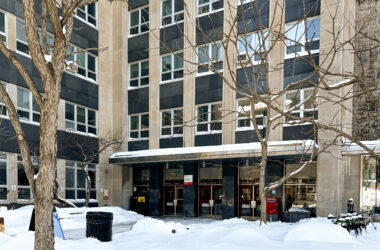The Quebec Council of Superior Education (CSE) released a report last month about the high dropout rate among Quebec graduate students.
According to the report, 44 per cent of Quebec doctoral students will not go complete their diploma, while on average 20 per cent of master’s students will take an extra two to four years to complete theirs.
The report cited financial stress as a major reason for graduate students to prolong and withdraw from their studies. Among other remedies, it recommended an increase in the number of merit-based scholarships in all disciplines.
Laurent Viau, president of the National Council for Superior Studies (CNCS-FEUQ) at the Quebec Federation of University Students, believes the problem is more than just funding, but rather a lack of academic guidance at the institutions.
Viau advocates a “more explicit relationship between academic units (or faculties) and students,” and study plans for graduate students that detail the student’s and faculty’s responsibilities and the resources available to students.
The number of graduate students dissatisfied with their academic supervision speaks for itself. A 2007 study by the CSE reported that 22 per cent of master’s students and 16 per cent of doctoral students were not satisfied with their supervision or guidance.
The report put graduate dropouts in the context of today’s knowledge-based economy, where a post-graduate education is almost vital. It outlined three main objectives: to ensure that there will be educational options that will meet the collective needs of Quebec, to support individual success at the graduate level through financial support and possibilties of mentoring, and to promote a successful campaign for developing high calibre graduate studies.
All in all, the council hopes, by bringing these issues to light, to convince both the government and Quebec institutions to raise education levels and continue to offer high quality graduate studies.







